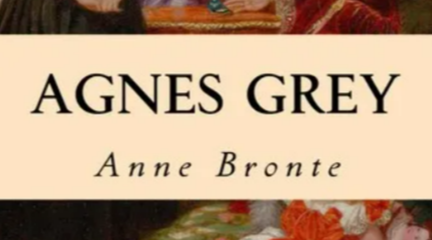Chapter IX — The Ball
byChapter IX – The Ball opens with a loud clash of personalities between Matilda and Rosalie, each eager to dominate the conversation with tales of their recent triumphs. Matilda, full of energy and scorn for convention, talks excitedly about her new mare and the thrill of the hunt. Her language is unfiltered, her gestures bold, and her joy stems from defying the delicate expectations placed upon young women of her class. Meanwhile, Rosalie rolls her eyes and waits her turn, embodying the elegant poise of someone who calculates her charm for maximum effect. The room becomes a stage for their rivalry, a contest between tomboyish exuberance and polished flirtation. Agnes, ever the observer, listens quietly, taking in the contrast with careful attention. These moments reveal more than words—they expose values, priorities, and the social masks both sisters choose to wear.
Once Rosalie secures the floor, her voice shifts into a detailed account of the ball, filled with the glow of chandeliers, rustle of silk, and the subtle tension of social climbing. She describes not just who was present, but who noticed her, making sure every detail of admiration is repeated for effect. Her beauty, her gown, her cleverness in conversation—all are mentioned as weapons of influence. Rosalie’s pride doesn’t stem from personal growth or character, but from how she is perceived. For her, the ball is less about enjoyment and more about measurement—how many glances, how many partners, how many whispers of envy were directed her way. Agnes hears it all and senses the emptiness behind the sparkle. Beneath the laughter and lace lies an anxious need to remain desirable, to matter within a system that rewards youth and appearance above all.
Rosalie continues, naming each admirer as if counting trophies, yet never showing real emotion for any of them. Her interest in Lord G—, Lord F—, and especially Sir Thomas Ashby is transactional. Their attention is currency; their titles, assets to be appraised. She expresses particular delight in provoking jealousy among the married women, relishing the power to unsettle others. There is no remorse in her tone, only satisfaction. Her remarks about Mr. Weston, the new curate, are dismissive, calling him plain and awkward, unworthy of her attention. The moment reveals more than cruelty—it shows how tightly Rosalie clings to her social rank. Anyone who offers sincerity rather than status is disregarded. Agnes silently disapproves but keeps her thoughts private.
The conversation shifts again, this time to Rosalie’s view on marriage. She speaks of it not as a partnership, but a transaction—a means to security and status, preferably with someone rich and respectable. Sir Thomas, despite his arrogance, is her preferred candidate because he checks the right boxes. Love is optional; wealth is not. Rosalie’s dream isn’t of a shared life, but of endless admiration, even as time passes. She dreads growing old, fearing it will strip her of the power she now enjoys. Her plan to always be adored, even into marriage, reflects her fear of becoming irrelevant. The idea of devotion or emotional connection doesn’t interest her—it’s attention she wants, no matter how shallow.
Agnes, who listens with quiet patience, begins to see the deeper consequences of such thinking. To live for admiration is to live in fear—fear of change, of fading beauty, of becoming unseen. She knows that Rosalie’s charm, while effective now, is built on fragile ground. The expectations placed upon women to remain desirable, even at the expense of their happiness, seem more cruel with each word Rosalie utters. Agnes reflects on how much energy is wasted on maintaining illusions. For her, true contentment lies in sincerity, not showmanship. The ball, dazzling though it was, becomes a symbol of this divide—between appearance and substance, between fleeting attention and lasting connection.
By the chapter’s end, Agnes is left with a stronger awareness of how people measure worth. Rosalie, trapped by vanity and ambition, may one day find that admiration is not the same as love. The people around her smile, but few truly know her. Meanwhile, Agnes carries her observations inward, seeking meaning where others seek applause. Brontë uses this chapter to draw a clear line between ambition driven by ego and fulfillment grounded in empathy. It is a reminder that in a world obsessed with status, those who choose depth may not shine as brightly—but they burn far longer.

